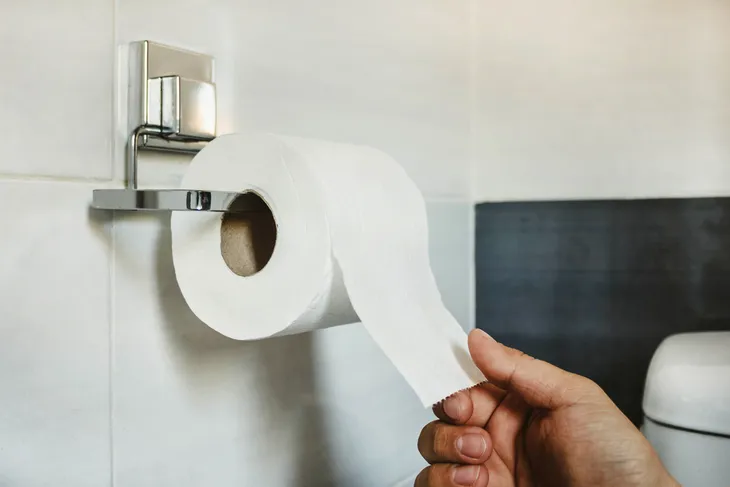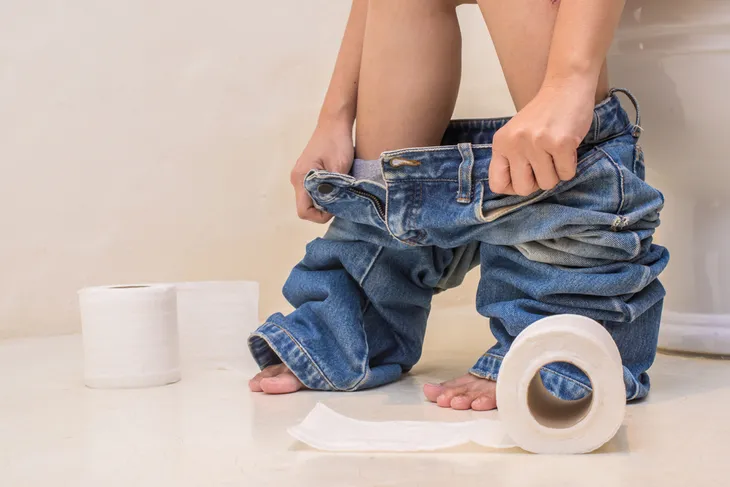While they may not be life-threatening, hemorrhoids represent a highly delicate topic in medical discourse. That’s because they affect parts of the body, specifically, the anus and rectum, that few of us want to discuss openly. And yet, millions of Americans suffer from hemorrhoids, also known as piles, which are swollen veins found in the rectum or the skin located just around the anus.
It’s believed that most American adults will be forced to deal with hemorrhoids at some point in their lives. Often, hemorrhoids are just a nuisance, but in some cases they can form a painful clot that may require minor surgery. So, what causes this problem, which can result in pain, itching, bleeding and general discomfort around our most sensitive area?
Constipation
Constipation is one irritating health problem that’s actually more prevalent than hemorrhoids, which affect a majority of American adults on a regular basis. That said, constipation can lead directly to problems with hemorrhoids.
That’s because straining to have a bowel movement can result in excess pressure on the rectum and anus, resulting in swelling of the veins in these sensitive regions of the body. In other words, if you’re consistently dealing with constipation (and often find yourself trying to force a bowel movement), there’s a good chance you will develop hemorrhoids. That’s why it’s a good idea to follow a high-fiber diet that can help prevent constipation and limit your chances of developing hemorrhoids.
Excessive sitting
For most of human history, people have spent much of their day on their feet. However, over the past hundred years or so humans have spent more and more time sitting. This is partly a result of the rise of the office culture and partly due to the steady increase of recreational (or non-work) time.
In some ways, this is a good thing, as more people get to spend time using their minds rather than just their bodies. But it also means we’re spending an excessive amount of time sitting, which can lead to significant swelling in the areas around the anus and rectum. For many people who sit for hours at a time, this means the development of irritating hemorrhoids. To limit your chances of developing this problem, get up and walk around whenever possible. Also, talk to your superiors about using standing desks that can help reduce the amount of time you spend sitting at work.
Too much toilet time
If you’re having problems with bowel movements, as a result of diarrhea or constipation, you may find yourself spending an inordinate amount of time on the toilet. This is a problem, as excessive time in this position can lead to swelling around the anus and rectum and, eventually, the development of hemorrhoids.
To reduce your toilet time, make efforts to limit your chances of developing problems such as diarrhea and constipation. Both of these issues are often the result of problematic lifestyle choices, such as a low-fiber diet, excessive alcohol consumption, or addiction to prescription painkillers. Talk to your doctor about these matters before the development of irritating hemorrhoids adds to your concerns.
Weight problems
Carrying around too much body weight can present you with a number of serious health problems, such as placing too much pressure on the heart, joints, and bones. Additionally, people who are overweight or obese significantly raise their chances of developing type 2 diabetes, which can prove extremely dangerous if not treated properly.
But being overweight or obese can be problematic for another reason, it can lead to the development of hemorrhoids. That’s because heavier people tend to sit for long periods of time, with their excessive weight putting undue pressure on an individual’s rear end. Therefore, making important changes to one’s diet and lifestyle in order to lose weight can be a great way to limit one’s chances of developing painful and annoying hemorrhoids.
Pregnancy
Being pregnant can present a woman with a vast range of health difficulties, from nausea during the early stages to sore joints and muscles as the months drag on. Unfortunately, because pregnant women tend to spend more time sitting and because pregnancy causes a woman to gain weight, hemorrhoids are a common problem. Additionally, many pregnant women struggle with constipation, which can also lead to hemorrhoids.
If this problem affects you or someone you know, it’s recommended that the patient try eating a high-fiber diet and limit the amount of time spent sitting. Talk to your doctor for more information about reducing the impact of hemorrhoids and limiting your chances of developing them.
Trauma
Sustaining some kind of injury to the anus and rectum can lead to swelling around the veins in this area, potentially leading to the development of irritating and painful hemorrhoids. This kind of trauma can be caused by a number of issues, from slipping on an icy sidewalk and landing on one’s rear end to engaging in anal intercourse.
It’s important to see your doctor right away if you’ve sustained any particularly painful injury to your buttocks, especially the rectum and anus. A doctor can carry out a careful examination of the area and determine if any swelling could lead to problems with hemorrhoids.









